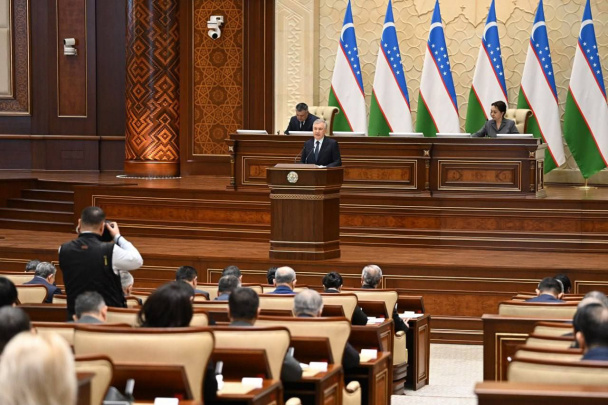Competition Committee uncovers 12 billion UZS worth of state procurement violations across multiple regions
The Competition Promotion and Consumer Protection Committee has uncovered legal violations in state procurement processes amounting to a total of 12 billion UZS.
The Committee identified legal violations in state procurement tenders in several regions.
In total, in 2024, violations were discovered in tenders worth 4.4 billion UZS. These include:
- The Health Department: 2 cases totaling 3.5 billion UZS;
- The Culture Department: 3 cases worth almost 490 million UZS;
- The Youth Affairs Department: 1 case worth 250 million UZS.
Tashkent City
Violations were detected in three tenders worth over 2.1 billion UZS under the order of the Republican Specialized Center of Therapy and Medical Rehabilitation. Also, in the Yashnobod district’s Pre-School and School Education Department, violations were found in three tenders worth almost 1.3 billion UZS.
Andijan Region
A tender from the Pre-School and School Education Department in Andijan City with an initial value of nearly 200 million UZS and one from the Shakhrikhan District Medical Association worth about 900 million UZS was canceled. Additionally, a 170 million UZS tender by the Cardiology Dispensary was flagged, and appropriate instructions were issued according to set regulations.
Jizzakh Region
In inspections conducted during July and August, legal violations were identified in tenders in the social sector amounting to nearly 850 million UZS, including:
- 49.9 million UZS for the Jizzakh Sanatorium for War and Labor Veterans;
- 360.8 million UZS for the Mirzachul District Medical Association;
- 210 million UZS for the Jizzakh branch of the Regional Institute of Rehabilitation and Clinical Medicine;
- 20 million UZS for the Sharof Rashidov District Medical Association;
- 200 million UZS for the Pre-School and School Education Department of Zaafarobod district.
Samarkand Region
Violations were found in a tender worth 310 million UZS under the order of the Okdaryo District Culture Department and in one for nearly 40 million UZS for the Kattakurgan City Drama Theater.
Kashkadarya Region
In a 107 million UZS tender by the Karshi District Medical Association, legal violations occurred in setting the criteria for evaluating tender bids.
Namangan Region
In 31 tenders with a starting price exceeding 610 million UZS by the Namangan Engineering Technology Institute, actions restricting competition or leading to such were discovered.
Syrdarya Region
Violations of the "Competition Law" and the "State Procurement Law" were found in a 162 million UZS tender by the Barkamol Avlod Children's School in Syrdarya.
Tashkent Region
In a tender worth nearly 133 million UZS by the Okkurgon District Medical Department, the criteria and principles for evaluating bids were not clearly defined, leading the procurement commission to evaluate them arbitrarily, without a consistent approach.
Navoi Region
Violations in the preparation of tender documents and meeting minutes were discovered in 10 tenders worth 660 million UZS in 2023 and tenders worth 460 million UZS in 2024 by the Pre-School and School Education Department in the city of Navoi. The requirements introduced could potentially restrict competition among participants.
Khorezm Region
Regional management documents, correspondence, and requests related to entrepreneurial activities were reviewed. It was found that the Health Department of Khorezm recommended that all heads of healthcare facilities purchase household and industrial electrical products from Texnopark LLC and promotional materials from Renaissance Islohotlari LLC.
Additionally, the Pre-School and School Education Department suggested using evaluation services from Intellekt Xorazm LLC, subscribing to the “First Step” magazine and other periodicals for 2024, and promoting two business entities.
Republic of Karakalpakstan
An audit of the Khujayli District Medical Association revealed that funds were collected from consumers for services provided with equipment that had not undergone metrological verification. As a result, 3,631,000 UZS were collected from 192 consumers between April and August for portable ECG services. Instructions were issued to return the funds to the consumers.
Based on these findings, cases were initiated or reports were submitted against the organizations involved. Mandatory instructions were given, and some responsible individuals were issued administrative reports, which were sent to judicial authorities.
Related News

17:50 / 05.03.2025
Uzbekistan to use AI for fraud prevention in public procurement

08:16 / 27.02.2025
Over 1 trillion UZS collected in traffic fines last year — Where does it go?

17:10 / 25.02.2025
Authorities clarify which traffic violations result in penalty points under new system

19:34 / 07.01.2025



